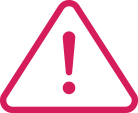The Importance of Accident Reporting
No Health and Safety system can ever eliminate the occurrence of accidents and dangerous incidents as we are all human beings and accidents will happen. A robust well-integrated H&S system will of course significantly reduce the likelihood of such incidents happening and by ensuring all accidents and near misses are reported it will help your business identify hazards and implement control measures, to prevent similar incidents in the future.
Why Accurate Accident Reporting Matters:
Accurate and timely reporting of accidents is not just a legal requirement but a fundamental aspect of maintaining a safe workplace. Here’s why it matters:
-
Prompt Response:
Quick reporting allows for an immediate response to the incident, ensuring that necessary measures are taken to address injuries, secure the scene, and prevent further harm.
-
Prevention of Recurrence:
Thorough reporting facilitates a comprehensive investigation, helping to identify root causes and implement preventive measures to avoid similar incidents in the future.
-
Legal Compliance:
Adhering to RIDDOR requirements for accident reporting is essential. Failure to report accidents promptly can result in legal consequences and financial penalties.
-
Employee Well-being:
Timely reporting contributes to the well-being of employees by ensuring they receive the necessary medical attention and support after an accident.
RIDDOR Overview:
The reporting process is governed by the Reporting of Injuries, Diseases and Dangerous Occurrences Regulations 2013 (RIDDOR) and requires employers, the self-employed, and individuals in control of work premises to report specified workplace incidents.
What to Report:
- Fatalities: Report any work-related death.
- Major Injuries: Report specified injuries, including fractures (except to fingers, thumbs, or toes), amputations, serious burns, loss of consciousness, and certain others.
- Over-7-Day Injuries: Report injuries that lead to an employee’s absence from work for more than seven consecutive days.
- Occupational Diseases: Report cases of certain occupational diseases, such as carpal tunnel syndrome or occupational dermatitis.
- Dangerous Occurrences: Report specific dangerous occurrences, such as the collapse of scaffolding, explosions, or the accidental release of a hazardous substance.
- Gas Incidents: Report any accidental release of gas at work that results in someone being rendered unconscious or requires resuscitation.
How Westminster Compliance Can Help You:
- Consultation Services: We offer expert consultation services to assist you in ensuring you follow the correct procedures for accident reporting. This service is included as part of our Guaranteed Compliance System
- Train your staff: Equip your team with the knowledge and skills needed for effective accident reporting and investigation through our specialised training programs
Get in Touch
Get in touch today to find out how we can help you create a safer workplace through effective accident reporting.






